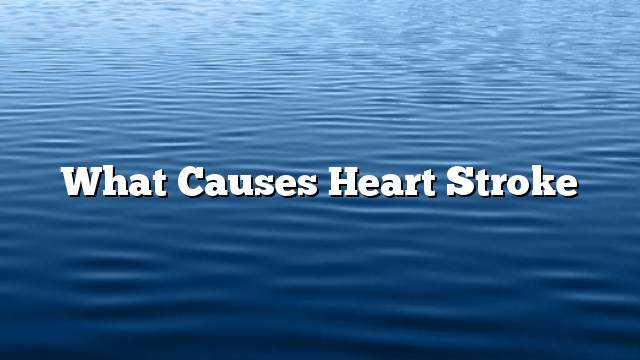Heart attack occurs when the flow of blood to the heart is closed, and often result in the closure of the accumulation of fat, cholesterol and other substances, which form deposits in the arteries that feed the heart (coronary arteries), and stop the flow of blood can cause damage or destruction in part of Myocardium.
Heart attack, also known as myocardial infarction, can be fatal, but treatment has been significantly improved over the years. 911 should be called immediately so that the situation can not wait. Any minute passing is crucial. Call Emergency Medical Assistance if you think You may have a heart attack.
Signs of heart attacks and the most common symptoms include the following
- Pressure, feeling of discomfort, pain, or severe chest pain that may spread to the neck, jaw or back.
- Nausea, indigestion, heartburn or abdominal pain.
- Shortness of breath .
- Cold sweat.
- fatigue.
- Vertigo or sudden dizziness.
Different symptoms of heart attack
It is not necessary to have the same symptoms in people who have a heart attack or have the same intensity Some people have mild pain while others while others are exposed to heart attacks without any symptoms, where the heart attack is the first sign of sudden cardiac arrest, Signs and symptoms may occur for days and weeks in advance. The earliest warning of a heart attack may be frequent chest pain (angina). Pain is noted in both cases during stress or rest. The cause of temporary angina is usually due to a decrease in TED Blood to the heart, which indicates the possibility of a heart attack.
Causes of heart attack
Heart attack occurs when there is a blockage of one or more of your coronary arteries, the coronary artery. Over time, constriction can occur as a result of the accumulation of various substances in the arteries, including cholesterol. For example, during a heart attack, one of these plaques can rupture Cholesterol and other substances in the bloodstream. There are also forms of blood clotting in the rupture that may block the duct, which is not large enough. The clot can completely block blood flow through the coronary artery.
Other causes of heart attack
Is the coronary artery spasm that stops the flow of blood in a part of the heart muscle, due to frequent use of tobacco and illicit drugs, such as cocaine, which can cause life-threatening convulsions.
